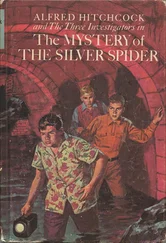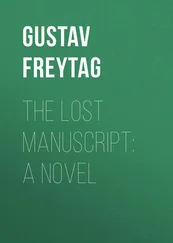Роберт Шеррифф - The Hopkins Manuscript
Здесь есть возможность читать онлайн «Роберт Шеррифф - The Hopkins Manuscript» весь текст электронной книги совершенно бесплатно (целиком полную версию без сокращений). В некоторых случаях можно слушать аудио, скачать через торрент в формате fb2 и присутствует краткое содержание. Год выпуска: 2018, ISBN: 2018, Издательство: Penguin Books, Жанр: sf_postapocalyptic, humor_satire, на английском языке. Описание произведения, (предисловие) а так же отзывы посетителей доступны на портале библиотеки ЛибКат.
- Название:The Hopkins Manuscript
- Автор:
- Издательство:Penguin Books
- Жанр:
- Год:2018
- ISBN:978-0-241-34908-3
- Рейтинг книги:4 / 5. Голосов: 1
-
Избранное:Добавить в избранное
- Отзывы:
-
Ваша оценка:
- 80
- 1
- 2
- 3
- 4
- 5
The Hopkins Manuscript: краткое содержание, описание и аннотация
Предлагаем к чтению аннотацию, описание, краткое содержание или предисловие (зависит от того, что написал сам автор книги «The Hopkins Manuscript»). Если вы не нашли необходимую информацию о книге — напишите в комментариях, мы постараемся отыскать её.
The Hopkins Manuscript — читать онлайн бесплатно полную книгу (весь текст) целиком
Ниже представлен текст книги, разбитый по страницам. Система сохранения места последней прочитанной страницы, позволяет с удобством читать онлайн бесплатно книгу «The Hopkins Manuscript», без необходимости каждый раз заново искать на чём Вы остановились. Поставьте закладку, и сможете в любой момент перейти на страницу, на которой закончили чтение.
Интервал:
Закладка:
But the crisis had overwhelmed them. On the morning after the Premier’s speech the newspapers told us the whole fantastic, pitiful story.
The dispute over the ‘British corridor’, critical though it was to us, emerged now as a mere side-issue to the chaotic problems that were tearing Europe to pieces.
The root of the trouble, as I have said before, lay amongst the ignorant, unscrupulous adventurers who had seized power. All of them realised the doubtful methods by which they had become leaders: all of them, with one accord, set out to strengthen their precarious positions by glorifying themselves in the eyes of the more ignorant of their followers. Their way to glory lay in clamouring for a bigger slice of the moon than anybody else got – the whole of it if possible. They cared nothing for those whom they professed to lead: they cared only for power and riches for themselves.
The scientific expedition had naturally explored a small part only of the moon. Riches had been found, but vast areas still awaited investigation. The ‘leaders’ were torn between playing for safety and claiming the wealth already known, and gambling upon large claims upon the unexplored sections. They had no defined policy: they changed their plans and increased their demands from hour to hour.
Unfortunately the northern part of the moon had so far proved more fruitful than the south, and the north had been assigned by the British Plan (before the wealth was known) to the Scandinavian countries. Naturally this led to uproar. Italy demanded the coalfields in Denmark’s area. France clamoured for the oil-wells in Sweden’s territory and all without exception shouted for the goldfields reported in the strip assigned to Holland.
When I speak of ‘France clamouring’ or ‘Italy clamouring’, or any other nation ‘clamouring’, I mean that the leaders ‘clamoured’. The poor, bewildered people knew little and cared less about their ‘rights’ upon the moon. All they desired was leave to rebuild their houses, to grow their corn and to graze their cattle, to feed their pigs and to sit in the evening sunlight when the day’s work was done. All that they desired was peace, and the dignity of quietness.
The quarrel extended in further and even more bewildering directions. The ‘leaders’ in central Europe demanded free and uninterrupted approach to the territories which they had claimed upon the moon, for as Robin once pointed out to me, central Europe was cut off from the moon by the territories of France and Spain that lay sprawled in their way.
A demand was accordingly made for ‘corridors’ through France and Spain, but these old and stubborn nations had no intention of splitting their territories into pieces with ‘corridors’ swarming with Germans, Dutchmen, Hungarians and Poles. They rejected the demands and refused to discuss the matter.
To make the problem worse, America suddenly became truculent and extremely difficult. The Council of European Nations, in a special session at The Hague, had formerly declared the moon to be part of Europe. As America had so frequently declared her wish to take no part in European troubles, it was naturally assumed that America would have nothing to do with the moon.
America, however, had strong opinions to the contrary. A new and upstart President of the United States dropped a bombshell by declaring that the fairest way of settling matters was to divide the moon according to the respective sizes of the nations concerned. As America was as big as Europe, America would take the western half of the moon and leave the eastern half for Europe to divide or fight for as they wished.
That, briefly, was the situation when the Hague Council broke up in disorder upon the 7th April. The Deputies returned to their own countries, declaring that they would ‘take whatever steps were necessary to safeguard their rights’.
It all came flooding through to us over the radio – flaming its way to us across the pages of the newspapers. Speeches: leading articles: special reports… diehards… pacifists… compromisers… they all came swarming back like unwholesome ghosts from the old world before the cataclysm. Major Jagger was right… human nature had not changed.
For my own part I discovered, to my pleased surprise, a new strength within me: a strength engendered by two years of self-reliance: a sturdy independence that sprang from my conviction that we had built in Beadle Valley a little self-supporting Empire of our own. Bread and vegetables, milk and eggs, poultry – rabbits – fish: we had everything to support life and plenty to spare to sell or exchange for boots and clothing. The man who needs nothing from his fellows has a fortress impregnable: impregnable even against universal lunacy.
The downs and the valley were lovely in those early summer days: our farm a picture. The bluebells found protection once more beneath the stripling trees whose branches were now broad enough to shade them. The louder our dangers were bawled across the radio the more contemptuous I grew: the more determined I became to have nothing to do with it – to ignore this lunacy and get on with my own work.
The brave old town of Mulcaster shared my views. They were sane, hard-working people; proud of their town, eager for its reconstruction. They listened to the radio and read the news and returned again to work. ‘It’ll all blow over,’ they said, ‘political scare.’
One evening, early in July, a gleam of hope emerged. John Rawlings, our Premier – the sole surviving statesman of the ‘old school’, spoke over the radio again. He announced that he was proposing a sweeping new Plan to all nations concerned. To end the drift towards disaster he proposed that every nation should give up all individual claim to the moon and its wealth: that the moon should be explored and its wealth exploited by a Permanent International Commission: that the wealth be pooled and divided amongst nations in fair proportion with their needs and population.
He spoke very well: he explained the complicated details simply and straightforwardly and as I listened I breathed a sigh of thankfulness. Nobody, not even a demented fanatic, could deny the fairness and common sense of the ‘Pool’.
There was a week of silence, and then came the news that every ‘leader’ in Europe had rejected the plan as ‘humiliating’.
When my bewilderment had passed, I realised the truth. There was no difference, in the vocabulary of the Leaders, between ‘fairness’ and ‘humiliation’. To them it was one and the same thing. The weaker their positions, the more moon they needed to justify themselves in the eyes of their followers, and as all of them were weak, it would have needed at least seven moons to satisfy the aspirations of them all. The vital issue to every Leader was not so much the amount he got, but how much more than the others he was able to snatch.
Our Premier’s plan was destroyed and our doom was sealed. Events now happened with such fierce rapidity and bewildering complexity that I cannot hope to relate them in logical order.
One evening – (it was August, because I remember the days were beginning to draw in) – I was startled from my work of collecting the eggs by an urgent shout from Pat. She came running from the front door, waving her arms and shouting: ‘Jagger! – quick! – Major Jagger!’
For a horrid moment I thought the man had called upon us in person. I hastened towards the house, and to my relief discovered that he had just been announced to speak over the radio in ten minutes.
‘ “Very special – great importance”, they said!’ Pat’s eyes were alight with excitement. She was still so charmingly young; so thrilled at the prospect of hearing over the radio the voice of a man whom she had actually met.
Читать дальшеИнтервал:
Закладка:
Похожие книги на «The Hopkins Manuscript»
Представляем Вашему вниманию похожие книги на «The Hopkins Manuscript» списком для выбора. Мы отобрали схожую по названию и смыслу литературу в надежде предоставить читателям больше вариантов отыскать новые, интересные, ещё непрочитанные произведения.
Обсуждение, отзывы о книге «The Hopkins Manuscript» и просто собственные мнения читателей. Оставьте ваши комментарии, напишите, что Вы думаете о произведении, его смысле или главных героях. Укажите что конкретно понравилось, а что нет, и почему Вы так считаете.












